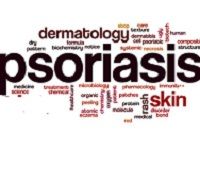Respite from Psoriatic Arthritis
Psoriatic arthritis patients receiving anti-tumor necrosis factor alpha can achieve remission, researchers in Ireland report.

Researchers found that psoriatic arthritis (PsA) patients receiving anti-tumor necrosis factor alpha (TNFa) could achieve remission. The team made the determination using the disease activity score using 28 joint count (DAS28) and C reactive protein (CRP).
The study was conducted by Tajvur Saber and CT Ng, of the Department of Rheumatology, at Dublin Academic Medical Center, St. Vincent’s University Hospital in Ireland, and colleagues, and was published in Arthritis Research & Therapy on May 18, 2016.
The authors state their goal in conducting the study as being to “specifically examine clinical and laboratory measures of disease activity to estimate remission rates in PsA patients and examine associated predictive factors.” A total of 473 patients participated, with 152 of them having a diagnosis of PsA and 321 one of rheumatoid arthritis (RA).
At 12 months, 58% of the PsA patients were in remission according to the DAS28. Those with RA also showed improvement, though at a significantly lower rate (44%) than the PsA patients. Additionally, the mean CRP also fell for PsA patients. The researchers also point out, “It was interesting to note that male PsA patients attained significantly lower DAS28 scores than females.”
All of the participants in this study were drawn from a biologic clinic, and the researchers say, “This is the first study to examine remission rates in a cohort of PsA patients from routine clinical practice studied prospectively in a dedicated biologic clinic.” The finding that nearly two-thirds of the participants with PsA achieved remission, significantly more than those with RA, indicates that the goal of remission is a realistic goal.
The fact that more men appeared to show a better response to TNFa therapy than women prompted the researchers to suggest, “One possible explanation is related to testosterone levels … may have a protective effect in seronegative spondyloarthopathies.” The results of this study seem to indicate additional research is warranted.
They conclude with: “These data suggest that remission is both a realistic and achievable goal in the majority of PsA patients.”